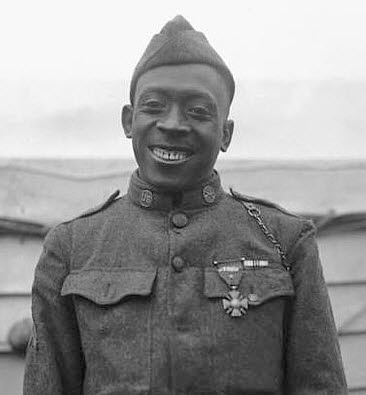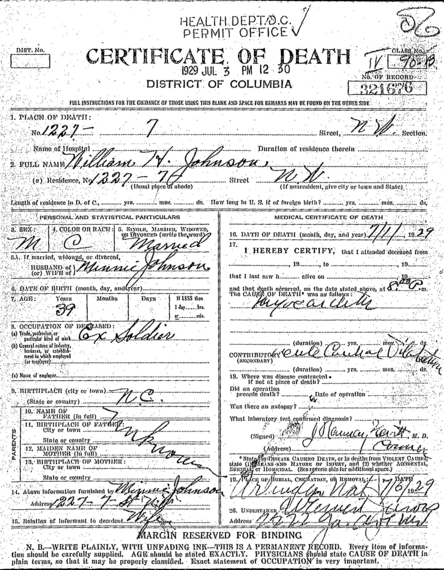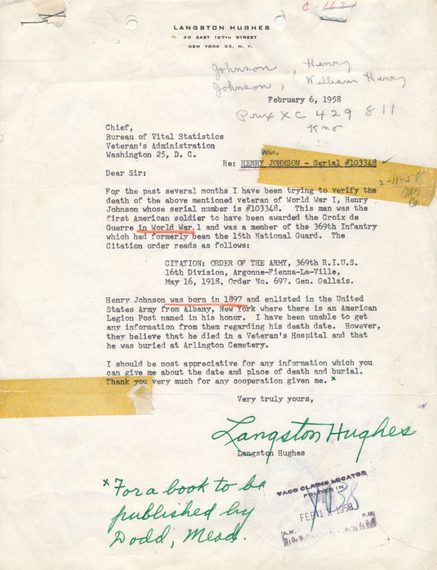Almost a century after their service, Sgt. Henry Johnson* and Sgt. William Shemin were finally awarded the Medal of Honor at a White House ceremony for their heroics in World War I. Both had been overlooked previously, though Johnson, an African American, was one of the first Americans to receive the Croix de Guerre avec Palme from the French government.
A fair bit of information about both soldiers can be found online, and while their bravery is beyond dispute, personal details about Sgt. Shemin are mostly accurate, while Sgt. Johnson's are frequently distorted. As the genealogist who had the privilege of researching both of these Medal of Honor cases for the Army, I had the opportunity to seek out and steep myself in more than 1,300 pages of Sgt. Johnson's paper trail, so I'd like to clarify some misconceptions.
- His full name was William Henry Johnson, but Sgt. Johnson preferred to go by his middle name of Henry and only occasionally used his full name for formal purposes, such as when he married. This is why, for instance, newspaper reports of his death can be found under both the names of Henry Johnson and William Henry Johnson.
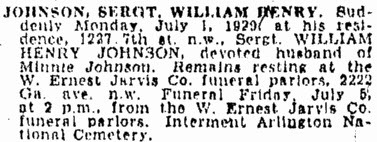
(Evening Star, GenealogyBank)
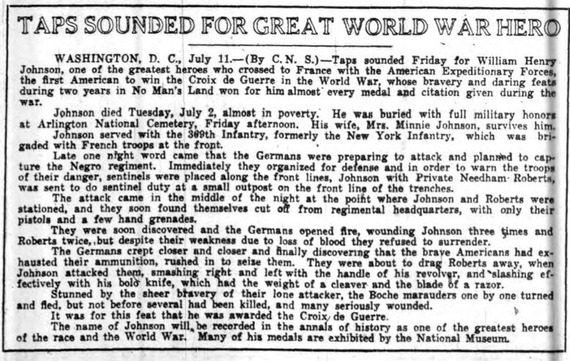
(Pittsburgh Courier, FultonHistory)
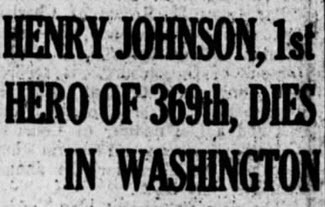
(New York Age, Newspapers)
- As seen here in his death certificate, Sgt. Johnson died on July 1, 1929 in Washington, D.C. and was buried in Arlington National Cemetery. Assertions that he died elsewhere (such as New York or Illinois) or on other dates are probably due to confusion with records of other soldiers with similar names.
- He was born in West Salem, a district of Winston-Salem, North Carolina. The notion that he was born in Alexandria, Virginia likely stems from his profile in the book Rank and File: True Stories of the Great War by Theodore Roosevelt, Jr., but is mistaken. Documents such as his World War I draft registration card demonstrate that Sgt. Johnson himself consistently reported West(ern) Salem/Winston-Salem as his place of birth.
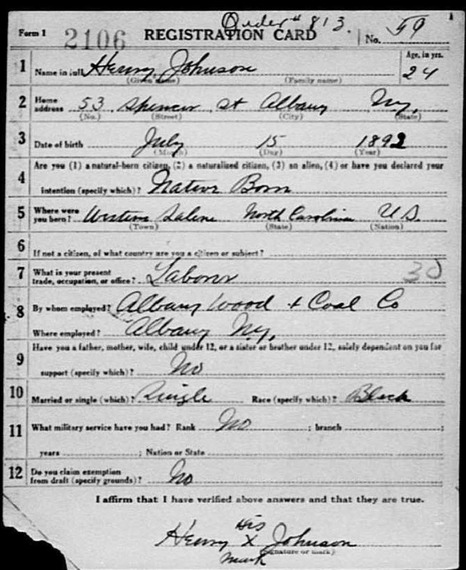
(WWI Draft Registration, FamilySearch)
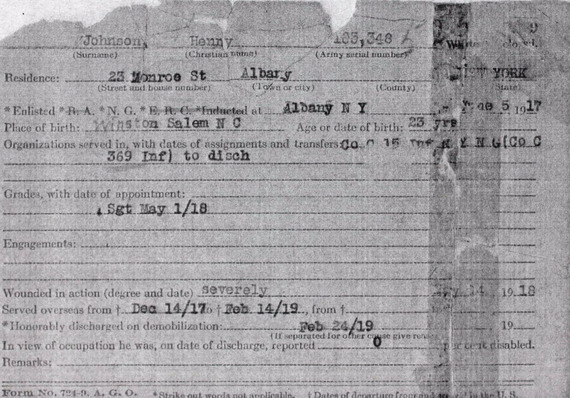
(New York Abstract of WWI Military Service, Ancestry)
- Sgt. Johnson was born between 1887 and 1897. Such a range may sound strange to 21st century ears, but accuracy and consistency in dates is a relatively recent development, as is our emphasis on birthdays. In all likelihood, the soldier did not know his own date of birth, and his lack of certainty is reflected in his paper trail, though he mostly claimed March 15th or May 15th of various years.
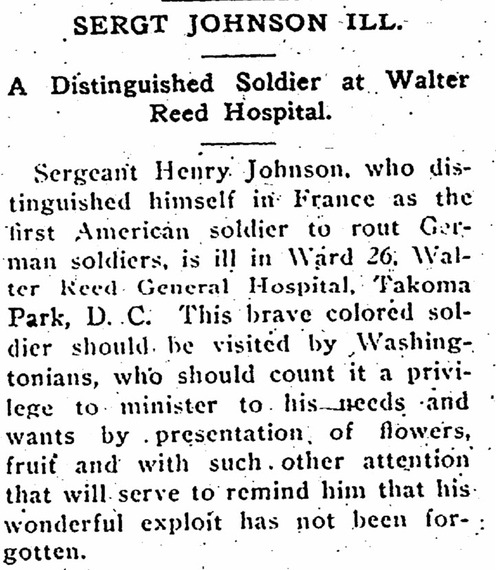
(Washington Bee, GenealogyBank)
- Though he regrettably has no known living relatives, Sgt. Johnson's courageous service was not entirely forgotten until now. In addition to the many who have campaigned vigorously on his behalf for the Medal of Honor since the 1990s, his admirers included Langston Hughes and fellow Medal of Honor recipient Theodore Roosevelt, Jr., who aptly described him as "one of the five bravest Americans" to serve in the war.
* While it is customary in award situations to use the rank of the soldier at the time of the relevant incident, I have opted to refer to Henry Johnson by his highest attained rank.

